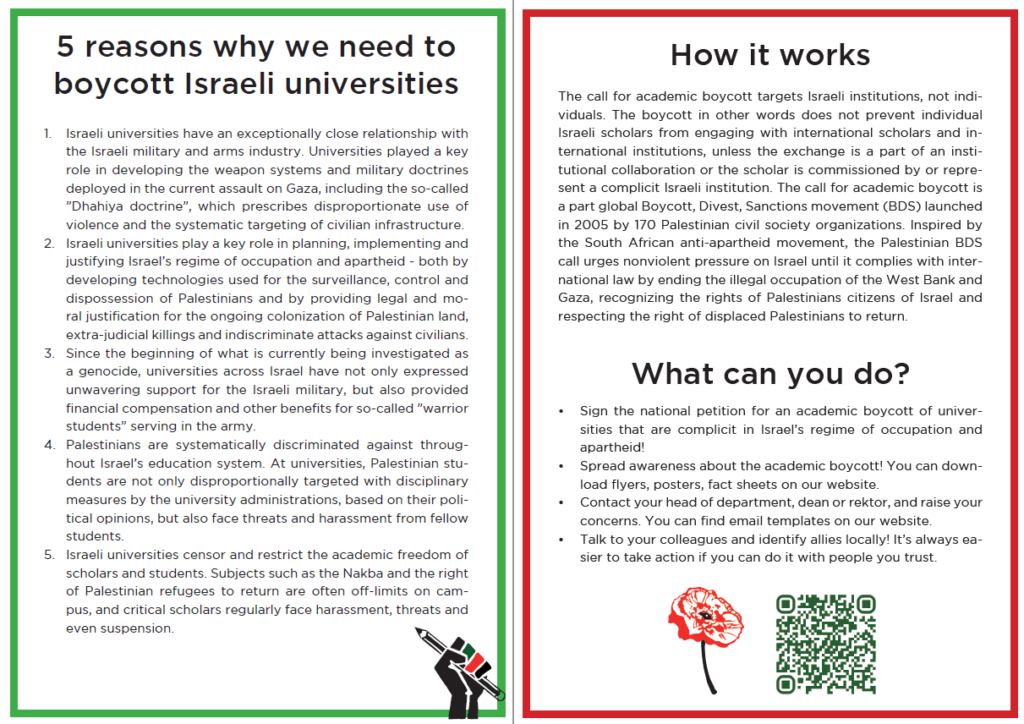


Email templates
Danske Universiteter is an umbrella organisation for all eight universities in Denmark. Through this network, university directors and the rektors meet regularly to discuss common issues in academia in Denmark. Write an email to the director/rektor of your university urging them to raise the issue of academic boycott with the committee. You can find their meeting schedule here.
